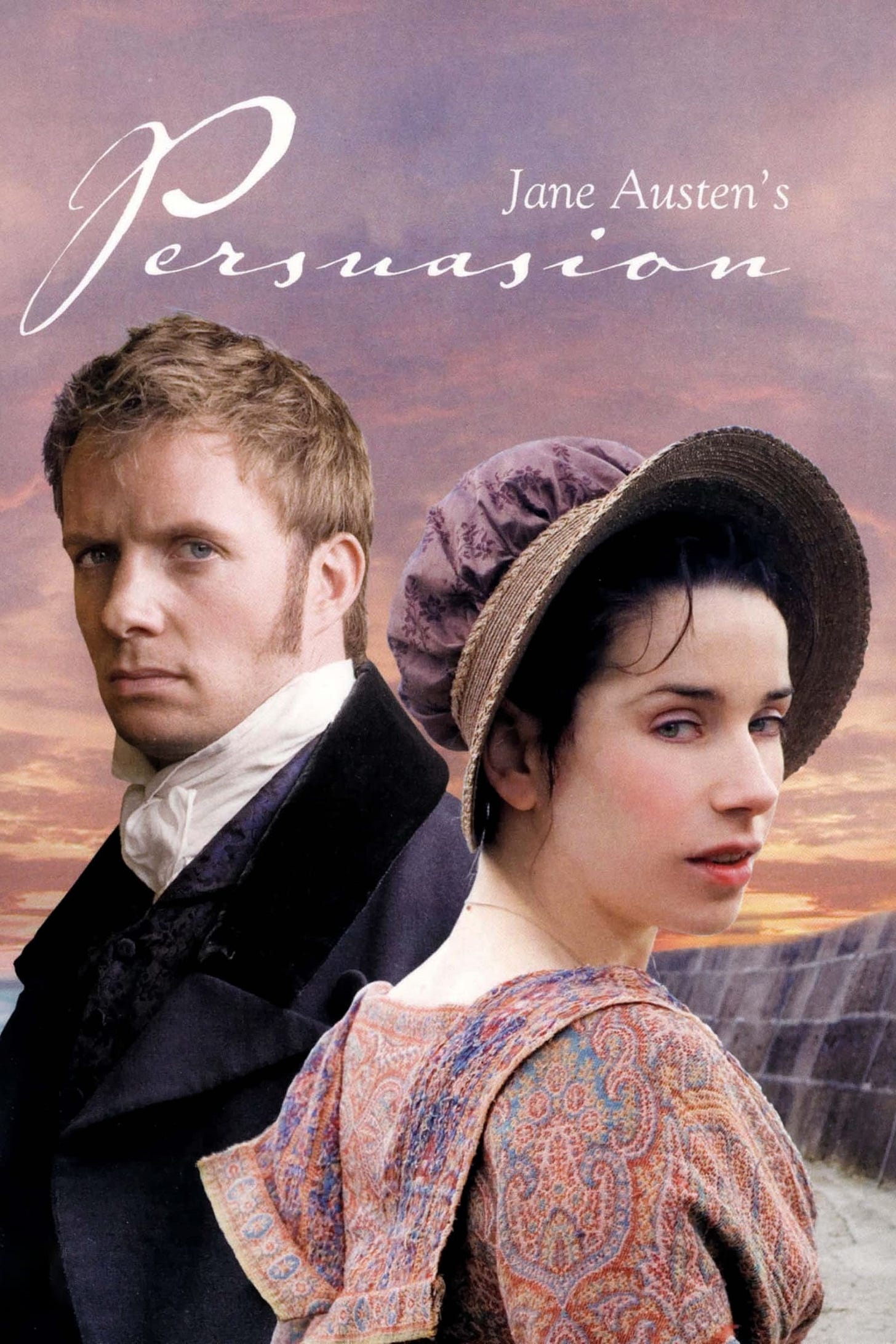Dear reader,
I have just come back from a holiday in the countryside and can confirm, in hindsight, that it was much, much needed. I’d like to tell you a little bit more about that soon, but for this week, let me share with you a couple of recommendations that I think you might enjoy. Free time to read and watch films is unfortunately in short supply for parents of young children, but going on holiday allowed me and my husband to catch up, and it was glorious. I’ll keep the list short and sweet this month, just the best of the best.
Novel: Persuasion by Jane Austen
My husband and I have been reading Persuasion aloud to each other these past couple of weeks. It’s his first time and, I believe, my third time reading it. I regarded it as my second favourite Austen for a very long time, just behind P&P, but I hadn’t in fact read it for several years, not cover to cover anyway. It’s been interesting to see how my perception of the character of Anne Eliot, the heroine, has changed over time. I used to think of her as the picture of perfection when I was a teenager, and aspired to be as much like her as possible. Now, at the ripe age of almost 27 (Anne’s own age), I’m beginning to find her a flawed character, which is making this reread of Persuasion fascinating. What I used to see as her selflessness, I now see as excessive timidity. As I told my husband, almost in astonishment, ‘How did I never realise that Anne is a doormat? Is it because I was a doormat for a long part of my life, and thought it was just normal?!’. My husband laughed and confirmed that to be the case.
But don’t get me wrong. I still love the novel and I still love its heroine. If anything, seeing Anne as less perfect makes the progression of the novel more interesting. I’m also much more keenly aware, this time around, of how interesting the discussion of class and professions is in Persuasion. Mr. Eliot, Anne’s cousin and heir presumptive to her father’s estate, laments keenly the ‘unfeudal tone’ of their day, referring to how people in trade and other professions, such as the navy, were rising in the world, while some of the landed nobility found itself rattled by the changes brought on by industrialization. In her usual style, Austen isn’t didactic or sermonizing about her own opinions on this. But the characterization of Captain Wentworth, compared to Mr. Eliot, makes it pretty clear that Austen isn’t in principle opposed to some social mobility at least. This is a fascinating issue that I will continue to ponder.
But if you haven’t read Persuasion before, these may not be the first issues that capture your attention. I remember being so struck by how somber, how contemplative, how melancholy the tone is compared to the rest of Austen’s novels. As much as I love, even prefer the high comedy of P&P or Emma, I find this to be a welcome change. If you have the time, I urge you to go read Persuasion right now - just don’t watch Netflix’s atrocious adaptation of it!
Nonfiction book #1: Wilberforce: God’s Statesman by John Pollock
This is the second Wilberforce biography I read this year, and I can’t get enough. I find him to be an endlessly fascinating figure, and not exclusively because of his involvement in the abolition of the slave trade. In fact, that’s the reason I’m enjoying this biography so much, perhaps even a little more than Stephen Tomkins’ one, which is excellent, but focuses heavily on the abolition issue. In Pollock’s book, Wilberforce emerges as a man whose faith predisposed him to take interest in a vast number of social and political issues. He helped promote penal reform and widen education for the poor, among other things. For his time, he was unpredictable, even eccentric. He was non-partisan and was known to vote in Parliament from conscience on any given issue, rather than from previous allegiances, which often ruffled feathers. He was also a devoted husband and father, taking an unusual degree of interest, again, for his time, in the rearing of his small children. As much as some of his policies are now criticised and considered draconian (he supported Pitt’s gagging laws in the 1790s, for instance, which limited the number of people who were legally allowed to assemble to protest), Pollock portrays him as a genuinely admirable man.
Nonfiction book #2: A Philosophy of Education by Charlotte Mason
While on holiday, I took part in my last session for a reading group, organized by the Catherine Project, on this treatise on education from the 1920s. First of all, this project is a really wonderful thing, and I highly recommend that you check it out. They organize free reading groups online on a wide range of subjects, from philosophy to literature. Charlotte Mason’s work is essentially an argument in favour of a true and democratised liberal education. It makes a very interesting distinction between knowledge, which is a natural curiosity that nourishes the soul, and mere information (which a student may memorise to pass an exam without actually acquiring real knowledge). If you’re a parent thinking about what kind of education you’d like to provide for your children (whether that’s in a school or at home), then I think you’d find this book fascinating.
Have you read anything worth recommending this past month? Let me know in the comments below!





I had hoped to participate in the Charlotte Mason group, but it wasn’t possible this spring/summer. I’m so glad that you enjoyed it!